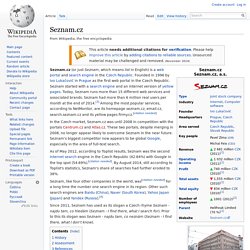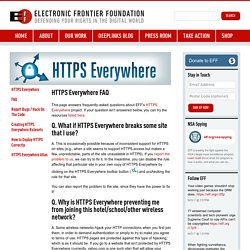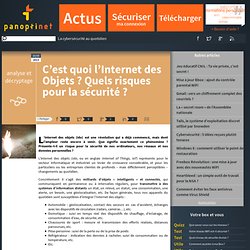

Anonymous backs encrypted social network 'Minds' (Wired UK) A new privacy-focused social network has seemingly won the support of hacker collective Anonymous.

Minds.com has just launched on web and mobile and is not only a social network in its own right, but operates as a free and open-source platforms for others to build on and share things with one another. "We are a free and open-source platform to launch your digital brand, social network and mobile app. We are also a social network ourselves. It is a global social network of social networks," the Minds team explains. The reason it seems to have attracted the likes of Anonymous, which has issued a call on Facebook asking the public to help build Minds, is that it offers end-to-end encrypted private messaging -- a boon for the group, the members of which mask their identities even from each other.
Two of those on the Minds team -- Bill Ottman and Lori Fena -- have strong backgrounds dealing with privacy and freedom of expression issues, and are both known for their internet-related activism. Seznam.cz. Seznam.cz headquarters in Prague Seznam.cz branch in Brno-Štýřice Seznam.cz (or just Seznam, which means list in English) is a web portal and search engine in the Czech Republic.

Founded in 1996 by Ivo Lukačovič in Prague as the first web portal in the Czech Republic. Seznam started with a search engine and an internet version of yellow pages. Today, Seznam runs more than 15 different web services and associated brands. In the Czech market, Seznam.cz was until 2008 in competition with the portals Centrum.cz and Atlas.cz. As of May 2012, according to Toplist results, Seznam was the second internet search engine in the Czech Republic (42.84%) with Google in the top spot (54.69%). Seznam, like four other companies in the world, was[citation needed] for a long time the number one search engine in its region. Since 2011, Seznam has used as its slogan a Czech rhyme Seznam - najdu tam, co hledám (Seznam - I find there, what I search for).
History[edit] Assessment[edit] References[edit] HTTPS Everywhere FAQ. This page answers frequently-asked questions about EFF's HTTPS Everywhere project.

If your question isn't answered below, you can try the resources listed here. Q. What if HTTPS Everywhere breaks some site that I use? A. This is occasionally possible because of inconsistent support for HTTPS on sites (e.g., when a site seems to support HTTPS access but makes a few, unpredictable, parts of the site unavailable in HTTPS). ) and unchecking the rule for that site.
You can also report the problem to the site, since they have the power to fix it! Q. KeePass Password Safe. BugMeNot: share logins. La désinscription la moins efficace du monde [Viadeo] - Vie pratique - Discussions. C'est quoi l'Internet des Objets ? Quels risques pour la sécurité.
L‘Internet des objets (Ido) est une révolution qui a déjà commencé, mais dont l’ampleur reste encore à venir.

Que signifie exactement ce phénomène ? Présente–t-il un risque pour la sécurité de nos ordinateurs, nos réseaux et nos données personnelles ? L’internet des objets (Ido, ou en anglais Internet of Things, IoT) représente pour le secteur informatique et industriel un levier de croissance considérable, et pour les particuliers ou les entreprises clientes de profonds – mais difficilement perceptibles – changements au quotidien. Concrètement il s’agit des milliards d’objets « intelligents » et connectés, qui communiquent en permanence ou à intervalles réguliers, pour transmettre à des systèmes d’information distants un état, un relevé, un statut, une consommation, une alerte, un besoin, une géolocalisation, etc. De façon générale, tous nos appareils du quotidien sont susceptibles d’intégrer l’Internet des objets : Filtrage : le gouvernement confirme la piste du blocage sans juge.
Le gouvernement devrait déposer son projet de loi sur les libertés numériques dès septembre.

Avec ce texte promis mille fois, l’exécutif envisage sérieusement la piste du blocage d’accès des sites, sans intervention préalable du juge. Un schéma qu’avait pourtant dénoncé le même groupe politique lorsqu’il était dans l’opposition. La piste évoquée dans nos colonnes se confirme. Selon les Échos, le gouvernement devrait déposer dès septembre au Parlement son texte sur les libertés numériques. Un volet important va concerner la question des intermédiaires techniques. Un filtrage chapeauté par la CNIL, le CSA, une autorité ad hoc ? Interviewée lors de l’inauguration des nouveaux locaux de l’ANSSI, la ministre déléguée à l’économie numérique nous avait indiqué que selon un arbitrage gouvernemental, « il n’y aurait pas de filtrage sans intervention d’une autorité indépendante ».
Quand le PS s'opposait au filtrage sans juge La position du Conseil constitutionnel Justement. Recharger batterie wifi chez DuckDuckGo. Cryptocat. Yes Profile - Combien gagnez vous avec votre profil? FakeInbox.com - Disposable E-mail Account.